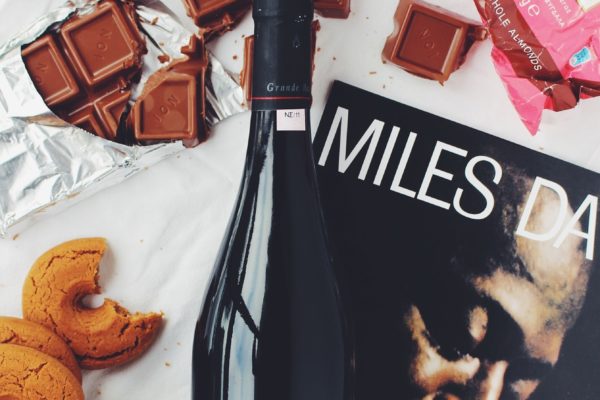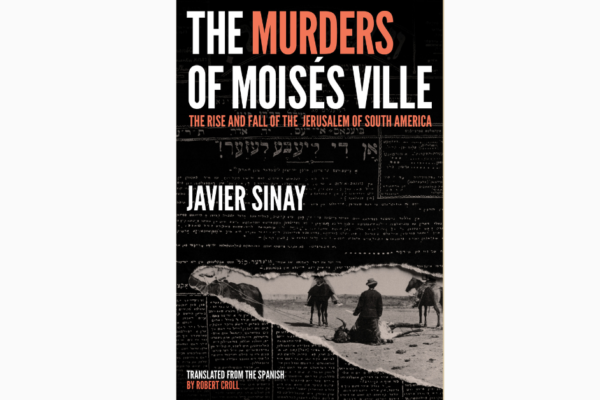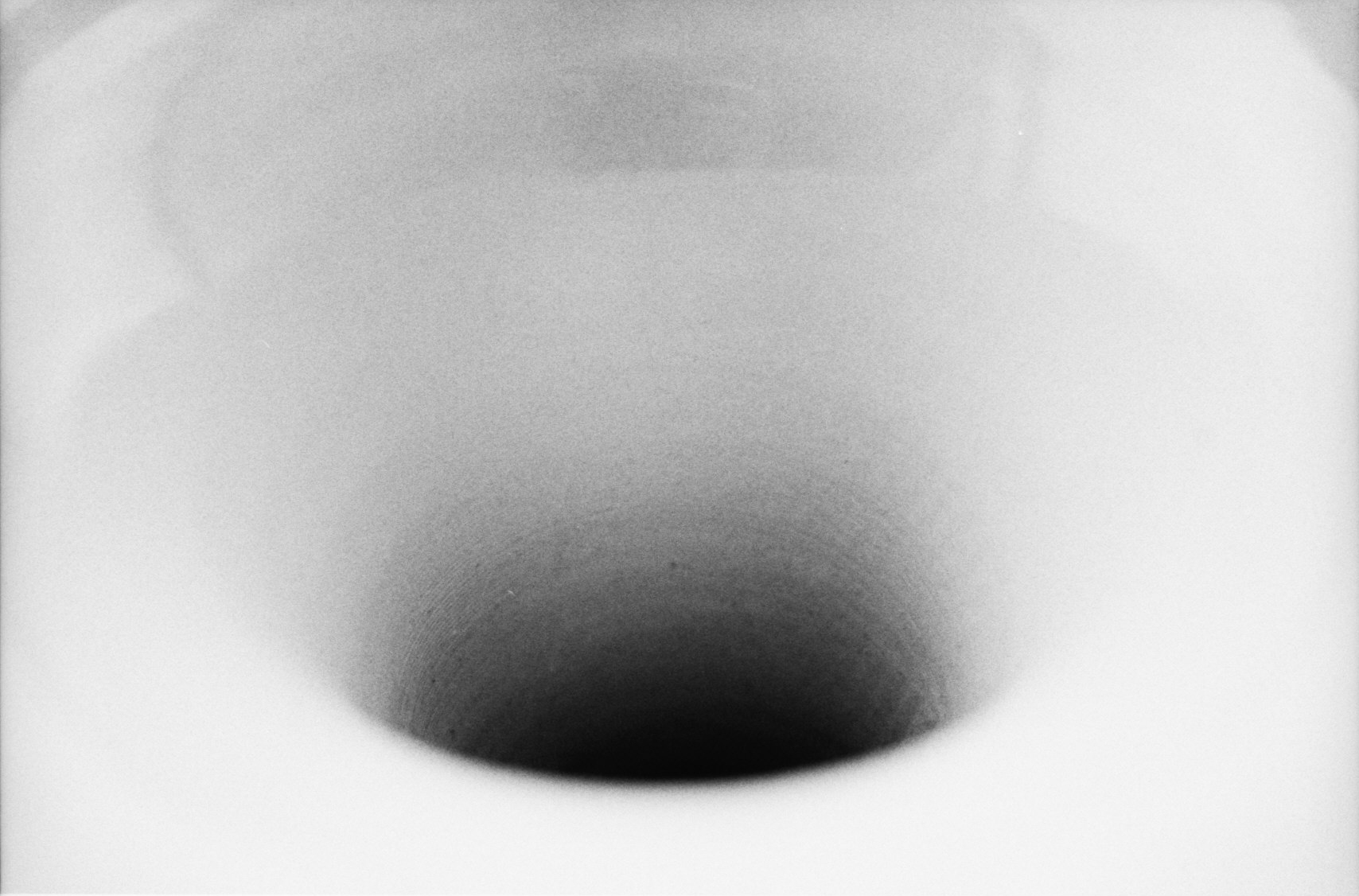By Dean Marshall Tuck
Is Ellie smiling at me—or is she just biting her saxophone reed? Her eyes look like she’s smiling. But can you smile and play alto at the same time? Freddie plays, and I realize I’ve lost my place on the chart. My eyes dart to the refrain, but my wind is sharper than my attention span, a result of practice, and my 2nd trumpet harmony falls in line with Freddie at the chorus. I’m not playing by ear, but rote memorization. We’ve played these charts every day after lunch for the entire spring semester. I don’t even need the music, truth be told. Lots of times, I watch Mr. Laughlin, our conductor, or I scan the crowd for girls, or just take in the moment. We wrap up “A-Train” after Freddie and a few upperclassmen improv solos. Mr. Laughlin speaks to the crowd, attempting his best late-night public-radio jazz deejay, all bass and mellow, never resting for breath:
“Ladies and Gentlemen, we appreciate you all coming to take part in the festivities tonight; we’re the Southern Vance High School Jazz Ensemble, and we’re going to play a few tunes from the jazz greats. The one you just heard was a Duke Ellington standard, ‘Take the A-Train.’ We might play a few more of his before it’s all over, but right now we’re going to take a different kind of train—the Colll-trane.”
He counts us off, and the tenor sax, trombone, and rhythm section begin the intro to “Blue Train.”
Freddie bounces with energy and confidence, pressing the valves on his trumpet. “Man, it feels good today,” he says. “I didn’t think so many people would be here. I guess the great weather brought them out.”
I nod, losing my count of measures to rest. I know where to come in anyway. “Feels like the world’s at room temperature,” I reply.
There is a surprisingly large group of people attending the jazz picnic this year. Last year rained us out, and we had to play in the elementary school gymnasium, but when it’s nice as this, we set up on the playground. People stretch out blankets on the grass with their coolers. There’s quite a few faces I recognize from school, but a good number of families have walked here from their houses. Just heard the drums and followed the music here.
Ellie sees me talking to her older brother, and I think she smiles again, but it’s hard to tell. Her dark hair hides her face at the angle we’re set up in tonight. In class, the trumpets stand behind the saxes and trombones and all I see are backs of heads. Tonight, Freddie and I are beside the trombones with the saxes on the other side of the trap set due to the narrowness of this rickety stage.
Between songs, Dirk, a trombone player with a buzz cut, leans over and gets my attention. “Hey, Saul. You gonna get your groove on with Kara tonight?” It’s hard to tell when upperclassmen are mocking you or not.
“What’re you talking about? Who’s Kara?” I smile and try to shrug it off, looking to Freddie to defuse whatever’s brewing.
“Chrissie told me Kara thinks you’re hot stuff.” Dirk laughs in two deep asthmatic wheezes.
“You should talk to her tonight between sets, Saul,” Freddie says, doing the opposite of defusing.
“I don’t even know the girl. Why would I want to talk to her?”
“You’re always complaining about not knowing any girls…well, here’s your chance. He just told you the girl likes you. This one’s teed up. The driver’s in your hand.” Aside from being first trumpet, Freddie’s a PGA hopeful.
The rest of the trombone section rallies with a few “yeeeah’s” and “yeah, Sauls,” then Laughlin nearly shouts, “Hey. Are you guys listening? We’re changing the set list. We’re switching ‘Shiny Stockings’ with ‘Now’s the Time’ at the end of this set cause the saxes are getting tired and probably won’t be able to handle the Bird for an encore.” Laughlin glares with feigned anger at the two altos and tenor, then flourishes back to face the crowd to babble about the next few tunes.
“I don’t know, Freddie. She’s…” I search for excuses, “kinda short.”
“The cheerleader you were hung up on last month is even shorter than her.”
“But rules are off for cheerleaders, right?” Another dumb excuse.
“You don’t have to do anything drastic. You don’t even have to ask for her number. Just go up and talk to her. You need practice. You’re rusty as that piece of shit loaner.” The brass trumpet in my hand’s covered with blotches where the lacquer’s been eaten away. Some clown sat on my trumpet three weeks ago, so I’m still playing this state-issued relic.
We play a few tunes. Gossip travels from the trombones to the drummer and then to the saxes. When Ellie catches on, she looks at me like I’ve broken an unspoken agreement between the two of us. She’s a tough one to figure out. Sometimes she gives me these looks, like 100-percent adoration, usually before she squeezes me like I’m a life-sized teddy-bear or something, and there’s nothing sexual about it in the least, but for me, it feels like a base, you know, in that whole baseball with girls analogy everybody uses where sex is a homerun (I think), and everything between is something else. I don’t know; a hug from Ellie’s kinda like a beanball.
Laughlin holds up a one and a four, mouths “chart fourteen,” and cues the piano to bring us into “Satin Doll.” Trumpets have the melody at “she’s nobody’s fool and she’s playing it cool as can be.” I look over my stand and see Chrissie sitting with Kara out across the lawn. Chrissie whispers something to Kara that makes her laugh, and we make eye contact. Her smile’s a little crooked. I like it.
I rush back to the sheet music like a dope. I think about looking intently back at her, but think better of it when I imagine what I must look like making eyes at someone while playing, like some stupid Dawson’s Creek moment. Freddie and I have the melody, and we’re playing the heck out of it all the while this game’s messing with my head. Finally, I glance back over my stand to see if she’s still looking. She’s not. My heart’s pounding.
The first set’s almost over and I can barely remember playing a note. I won’t leave Freddie’s side at the break. Ellie will come speak to me, and so Kara will probably keep her distance. The band rattles off an arrangement of Charlie Parker’s “Now’s the Time,” sustains the last note, gets the cut-off from Laughlin, and everyone claps.
I turn around, pinch the spit valve to blow the condensation from my trumpet, rearrange a few charts on my stand, but I’m only stalling. The band leaves the stage and walks out into the crowd. I join Ellie and Freddie over by a card table with an aluminum pitcher of water and little plastic cups. I loosen my tie and take a swig of water. It’s almost cold and tastes like melted ice.
“You sound good.” Ellie beams, bumps into me with her hip, and hooks her arm around me. I can’t act cool; I’m nervous about everything: the performance, the Kara thing, Ellie’s arm around me, our hips touching…
Ellie looks pretty funny in a business suit. Laughlin makes everyone wear suits and ties for gigs. He gave Ellie the option of wearing a dress, but as the only girl in the band, she decided a suit would help her blend in easier. Before our first show, Freddie took Ellie and me to the Goodwill. I found a three-piece, navy blue suit with pin stripes, and Ellie found a black two-piece her mother tailored to fit more snugly. It really works for her. Freddie wears a dark gray suit with a matching fedora. We all look like Guys and Dolls extras.
“Saul!” Laughlin waddles over to me, his two kids clinging to his legs. “You better play louder, boy. I need to hear that harmony.”
“I don’t want to play over Freddie’s melody. It’ll sound dumb.”
“Trust me. You ain’t gonna drown out Freddie.” He twitches his moustache and nudges Freddie in the gut with his elbow. “Y’all wrap it up. We ain’t gonna break for long. Only so much daylight left to read music by.” He walks back to his plump wife who’s wearing a red-and-white polka-dotted maternity outfit.
I dramatically gulp down another cup of water as if it were a shot of bourbon and look to the ground. Ellie laughs and shakes me a little. “You’re doing fine. It’s only music,” she says and laughs. “I’m playing really bad. Did you hear me during ‘Moonlight Serenade’? I squeaked and honked all over it—messed up the other saxes a time or two.”
A light breeze moves her hair slightly from her forehead, and she squeezes me tighter. We smell like Goodwill polyester smashed together.
Dirk is talking to his girlfriend, Chrissie. He’s casting me odd glances. He’s orchestrating something, and I’m certain it involves me talking to Kara. My heart gets fluttery, so I turn all of my attention to Ellie still clasped to my blue polyester ribcage. I look into her dark brown eyes, and she says something, but I can’t think straight, and I have no earthly idea what I might do next. I faintly hear Dirk’s double-wheeze laugh and Chrissie’s girly snigger approaching, and I know Kara’s with them. I look at Ellie’s lips, and then back into her eyes. Things feel so slow, now, like someone’s playing a record on the wrong speed setting. I’ve never kissed a girl before.
“Saul.” My name’s a sour note. Freddie says, “Have you met Chrissie’s friend, Kara?”
“Uh, no. I haven’t.” I force a smile I hope’s friendly, and I can feel everyone enjoying the display. Ellie’s hand falls from my side as I reach to shake Kara’s hand—an oddly formal gesture, but we’re all wearing business suits anyway.
Kara pulls her chin-length hair behind her ears. She’s wearing khaki shorts and a green tank top that flaunts two smooth shoulders, winter pale.
“Hey,” Kara says first.
“Hey.”
Freddie and Dirk back away to disappear with Ellie back to the stage, and Chrissie slinks to her seat leaving me to improvise cool, but it’s like soloing over Mixolydian chords; I’m flubbing and slurring to find the right words; I’m—I’m still holding her hand. I let go. “So…”
“You’re playing really good,” she interrupts, thankfully.
“Thanks,” is all I can say.
“Chrissie said you have a few solos coming up.”
“Yeah. I’m pretty nervous.” I grab the back of my neck for some reason.
“I’m sure you’ll do fine.”
“Well, they’re pretty short, but I guess we’ll see.” I smile more convincingly now, I hope.
She says some more stuff, and talking’s feeling less forced now. Somehow we started talking about me getting my braces removed, so she’s staring at my teeth, and I want to change the subject, then she says, “So are you and Ellie pretty good friends?”
“Ellie? Uh, yeah. Yeah, we are. I’m really good friends with her brother, Freddie.”
“Oh.” A flat note.
There’s an excruciating pause, and I hear Freddie run through a few quick scales. “Well, it was nice getting to talk to you,” I offer as acceptable walking-away words.
Her smile straightens for a moment. “Yeah.” She whirls back towards her seat, whipping her short hair, which smells sweet like wisteria. As she walks away, I notice the small of her back and feel hot all over. The trombones and saxes are tuning. I wipe the sweat from my forehead, find my place on the stage.
When I walk past Ellie, she pinches my pant leg to get my attention, then gives me this weird look I can’t quite describe, though I know it isn’t a pleased one. Was she watching me with Kara? Does she care? I return to my trumpet. The size 7C mouthpiece is cold to my lips.
The evening dwindles down to the last two songs. The second set is always organized so we can work our way back into the pocket and finish strong.
“You’re playing the ‘String of Pearls’ solo tonight,” Freddie says, like it’s an afterthought.
“What?”
“I heard you practicing it the other day. You can swing it.”
“Does Laughlin know this?”
“He doesn’t need to. Next year you’ll have to play it every show, so you might as well get a taste of it now.”
“I’ve got the ‘One O’clock Jump’ and the ‘Cruise Control’ solos, ‘Kapella…’”
“And you’ve practiced and played them so many times it’s not even jazz anymore. It’s just notes.”
Trumpet solos in a high school jazz band are like family heirlooms. You don’t just hand them out on a whim—especially not during a gig. They’re supposed to be designated for the trumpet on 1st part to play throughout their senior year, then upon graduation, abdicated to next year’s senior trumpet player, and it’s not just a matter of skill; it’s tradition—ritual—the damn cosmic order of things.
“You’ve got the fingerings down; you’ve got the chops; it’s in your range. Just feel it.” Freddie thinks he’s comforting me. “Just feel it.”
Mr. Laughlin begins to ramble about Glen Miller to the crowd, and I know “String of Pearls” is up. I position my stand so that Kara can’t see me if I totally screw this thing up. I wish I had a wall of stands to circle around me.
The song starts. I feel faint. Just feel it. Just feel it. I anticipate each note from every horn: the sax solos, the soft piano fills, the blaring trumpet responses to the saxes, and finally, the trombones who play backup during the solo. The measure of Harry James’s patented “String of Pearls” solo arrives. Freddie’s silver trumpet hangs loosely by his side. It’s all me.
And everything goes quiet.
Before you realize, you’re playing along. You’re hearing the band, and you’re lost, somehow—because everything’s disappearing. The whole world. It’s only you and the sound. And it’s so quick. So quick.
Something a lot of people, I think, don’t realize about music, jazz in particular, is how momentary it is. It’s like a sneeze or backfire from a motor. The instant it happens, it’s gone forever. If you’re thinking about the notes or the technique when you play, then you’ll never understand jazz. Jazz is last night’s forgotten dream you told yourself you’d remember forever.
A brief applause and the solo is over.
I return to my 2nd trumpet harmony for the remainder of the song. Mr. Laughlin extends his hand towards me as the saxes hold on the warm final chord. “Saul Baker on trumpet solo. Come out from behind that stand, Saul.” I raise my hand like someone’s taking roll. A few chuckles from the band, and we pull out the closer while Kara and everybody clap. Instinctively, I look towards Ellie for approval. She looks at me like she’s proud, but also a little sad. And for a moment, I am, too. Next year Freddie and half of the horns and rhythm section will be gone, and a bunch of amateur tenth graders will take their place.
“Mom and dad are moving to Raleigh this summer,” Freddie says.
“Huh?”
Mr. Laughlin says with a speedy “outro” rhythm, a deejay wrapping up the late-night jazz slot: “This last one we’re gonna do for you tonight is my personal favorite. It’s a Count Basie tune called ‘Shiny Stockings.’ We hope you had a great evening and would like to once again thank you for your support. Good night and God bless.” He counts off the beat, and the song begins.
Trumpets and trombones stick cup mutes in the bells of their horns. “Shiny Stockings” is a real laid back, easy-to-dance-to kind of song with slow swing-eighth notes that fall so far behind the beat you can barely keep yourself from patting your foot or tapping time on something. It’s the song I request every day before the fourth period bell rings because the melody always gives me chills. Of course I don’t need the chart. I finger the notes on my pencil and think-sing my part sitting in chemistry class or during a Sunday sermon.
It’s no different tonight. It’s automatic. We’re playing the song, and it finally dawns on me what Freddie’s saying. Ellie won’t be around next year. This is our last show. I look at her, then out to the crowd. I see Kara watching me so closely, listening for me. The way she hugs her knees—she’s wishing they were me. Nearby, kids are playing under a few oak trees, drawing pictures in the ground. A few of the older couples are dancing in front of the stage. Streetlights are beginning to blink on with the fading sun, making the brass horns glimmer with every movement. Ellie’s fingers slide up and down the silver keys, and the golden light reflecting off her alto has her face shining like she’s some kind of brunette angel. I can’t imagine the song ever ending. The saxes in unison sound like singing; the trumpets and lowers join in. Our piano player’s no Count Basie, but his notes dangle in the air like lightning bugs. I can feel the hair on my forearms standing underneath my jacket. The air’s dampening with twilight. It breathes cool and easy. This is it.




